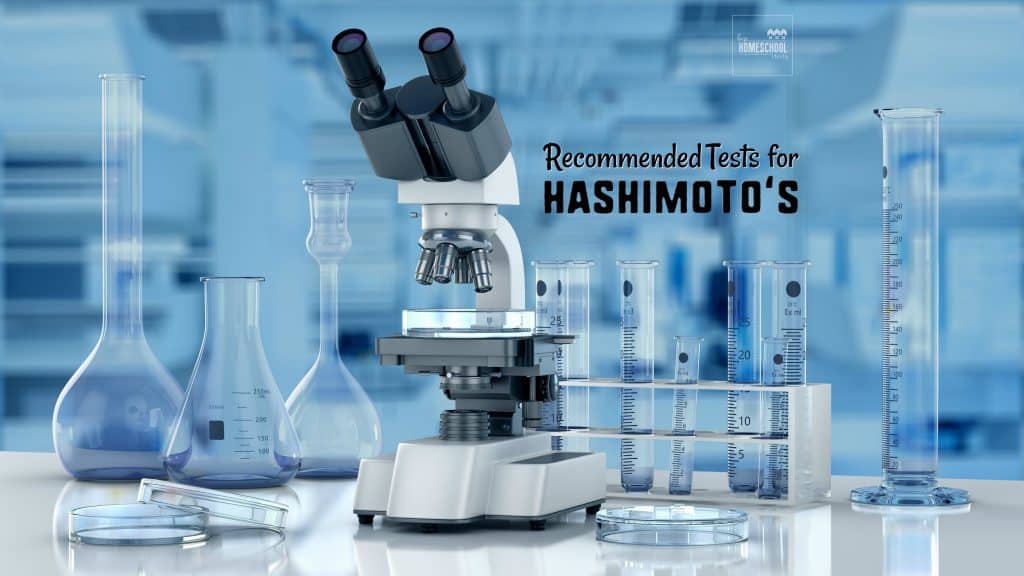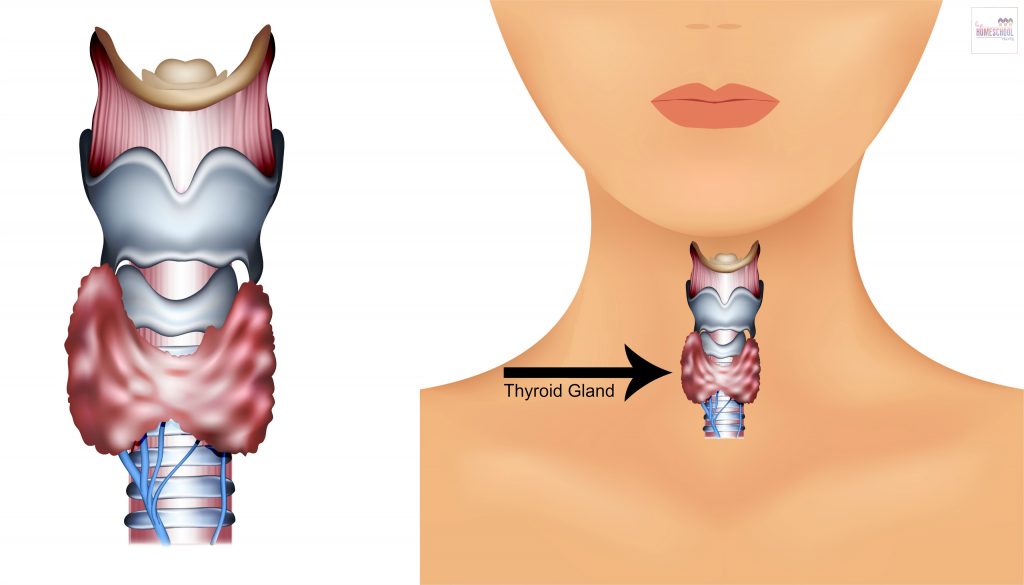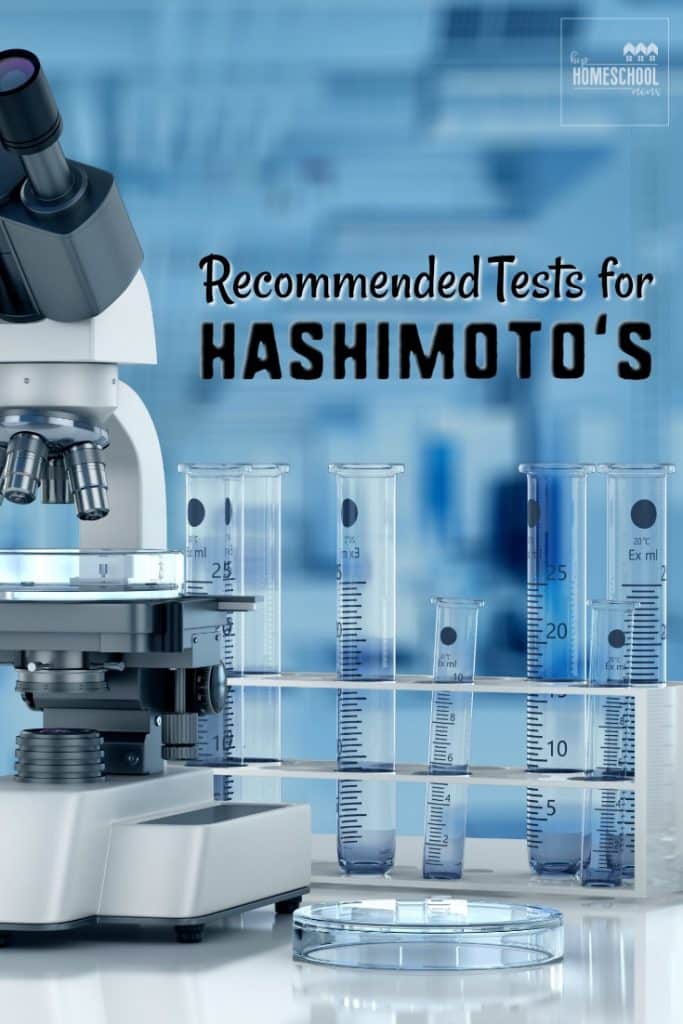Recommended Tests for Hashimoto’s
I know, I know… it took me long enough to return to my story, right? I’ve been off working with Rachael Carman on the Evening of Real Refreshment retreats at all the Teach Them Diligently conventions. So I’m just getting settled back into a routine. Please accept my sincere apology for the long delay, but I promise you … that time with homeschooling moms and being a part of Rachael’s ministry are just precious. And honestly, it is also part of my story. Honestly, without the Hashimoto’s diagnosis and the subsequent meds my naturopath recommended, I’m not sure I would have been able to work all those long hours coordinating this event. So let’s pick up there… what are the recommended tests for Hashimoto’s?

If you recall, in my last article, I shared what all of my symptoms were. When I originally read that list I was pretty shocked and skeptical about all the symptoms now being associated with Hashimoto’s. But after researching what is happening to my body, most of them make sense. Those symptoms are what led me to the naturopath and the reason he did most of these tests.
At the end of 2015, I went to see a naturopath for the first time. It took me three months to get in to see him, but I am so glad I waited! He sat with me for over an hour
… talking with me,
… asking me questions about my medical history,
… trying to put the pieces of this puzzle together to see what was happening.
And since my family has a history of thyroid disease, I naturally felt testing my thyroid was one of the first places to start. However, up until this point, all of the doctors kept telling me my thyroid numbers were okay. But after doing a ton of research, I realized they were not using the best tests to determine the function of my thyroid. Thyroid tests are blood tests that check how well the thyroid gland is working and measure the various levels of thyroid hormones present. The thyroid gland’s purpose is to regulate almost every single cell in your body and various organs and tissues! The thyroid is responsible for controlling not only energy consumption, but also our body temperatures, weights, heart rates, and the biggie…. our overall body metabolisms!!

The thyroid gland is a butterfly-shaped gland that is found in front of your trachea (windpipe), just below your larynx (voice box). When you have a normal, healthy thyroid, it produces T4, T3, T2, T1, and calcitonin hormones. T3 is what the doctors call the active hormone, and it is produced by the conversion of T4 to T3 as well as directly by the thyroid.
With my research in hand, I headed into the naturopath to ask for some very specific questions about why certain tests were not being conducted. I was expecting a battle.At the very least, I figured I would have to explain why I wanted certain tests. I thought I’d have to encourage him to just do the tests, and I’d have pay for them out-of-pocket.
Based on my research, these are the tests that I would need. Thank goodness, my naturopath was very familiar with them and was perfectly fine ordering these tests… and they were covered on my insurance! My naturopath is also an MD, and my insurance company now lists him as my primary physician!! I would highly recommend that you try to find the MD/Naturopath combination if you can.
Before I get into the tests and numbers, I have to emphasize… I’m not a doctor. This is simply my experience, research, and test results. Each person’s body chemistry is different, so these are not necessarily recommendations. Consult your doctor (preferably an MD/Naturopath) to see where you might want to start.
These are the first round of tests my naturopath pulled. I have marked the results in red if they are outside of the normal range.
Free T3 (Free Triiodothyronine)
Free T3 measures how much T3 is not already bound to proteins… in other words, it measures what the body is able to actually use. It is the only active thyroid hormone actually used by the body’s cells.
What do the results mean?
Higher numbers suggest hyperthyroidism (an over-active thyroid). Lower numbers suggest hypothyroidism(an under-active thyroid).
What is considered normal or optimal?
Free T3: 2.3- 4.2 pg/mL
My results:
4.3 pg/mL
Free T4 (Free Thyroxine)
About 0.05 – 1% of circulating T4 is in the free portion, which is unbound.
What do the results mean?
Higher numbers suggest hyperthyroidism. Lower numbers suggest hypothyroidism.
What is considered normal or optimal?
Free T4: 0.8 – 1.8 ng/dL
My results:
1.54 ng/dL
Thyroid Stimulating Hormone (TSH)
This is a pituitary hormone that tells the thyroid to get to work. TSH regulates the thyroid’s production of the T3 and T4 hormones; and those hormone are what control the body’s metabolism!
What do the results mean?
Results are reversed on this one. If the numbers are high / over the “normal range,” then the thyroid is underactive (hypothyroid). Levels below the normal range suggest that the thyroid is producing too much hormone and is therefore overactive (hyperthyroid).
What is considered normal or optimal?
0.5 – 4.70 uIU/mL
My results:
.0149 uIU/mL
Thyroglobulin Antibody (TG Antibodies, TgAb)
Thyroglobulin antibodies (TgAb) are immune proteins produced that target thyroglobulin.
What do the results mean?
High numbers of this specifically suggest autoimmune thyroiditis and can lead to the destruction of the thyroid gland.
What is considered normal or optimal?
Less than 4.0 IU/mL
My results:
<20IU/mL
Thyroid Peroxidase Antibody (TPO)
This is an enzyme found in the thyroid gland, and it plays a huge role in the production of thyroid hormones. A TPO test will determine the level of antibodies in the blood. TPO antibodies in your blood suggest that the cause of thyroid disease is an autoimmune disorder (like Hashimoto’s disease or Graves’ disease). In autoimmune disorders, your immune system makes antibodies that mistakenly attack normal tissue. Antibodies that attack the thyroid gland cause inflammation and impaired function of the thyroid.
What do the results mean?
High numbers on this one point to inflammation of the gland usually due to autoimmune Hashimoto’s thyroiditis.
What is considered normal or optimal?
Less than 35 IU/mL
My results:
303 IU/mL
Reverse T3 (RT3)
This test is controversial in the traditional thyroid community. The naturopathic community, and especially those who really focus on getting the best hormone balance, consider this test for RT3 to be essential in the diagnosis and management of thyroid issues. RT3 is an inactive form of T3 that cannot deliver oxygen and energy to the cells.
What do the results mean?
If you have an elevated RT3, that suggests hypothyroidism.
What is considered normal or optimal?
10-24 ng/dL
My results:
25.3 ng/dL
If you are at all familiar with thyroid tests and numbers, you will immediately notice mine are all over the board. For that very reason my naturopath did not want to take my case. He actually referred me to a traditional endocrinologist. But I returned and begged him to take me and he relented. I’ll share that story later too. But one thing I know for sure: When your body has decided to attack itself (autoimmune disorders), you have to be your own medical advocate. Don’t be afraid to fire your doctor and find one who is willing to walk this path with you. To help you find the right tests, the right supplements, and yes, if necessary, the right medicines.
Next week I will share exactly what my naturopath recommended I do, step by step. But there is too much to cover in just one article. So be watching for other future articles which will include the books he suggested I read, the diet he recommended, what he said about exercise, and much more. You can find all the articles in this series here.









